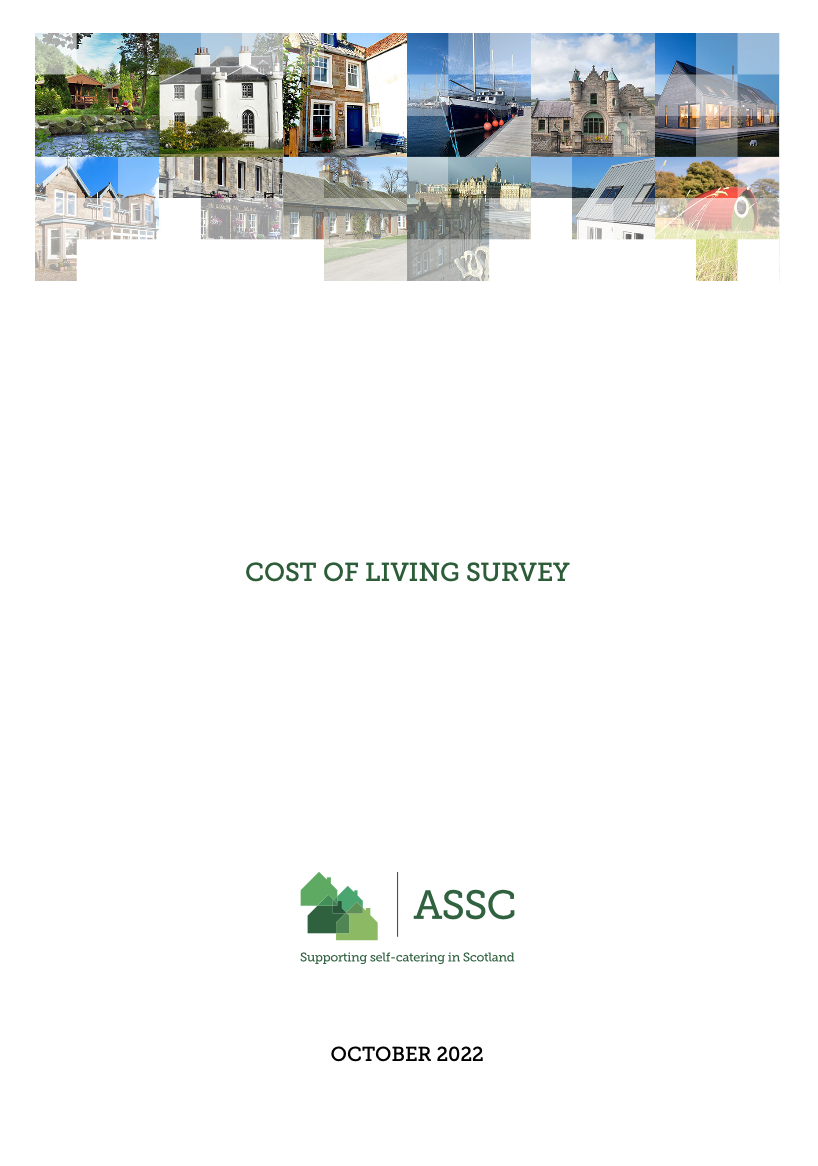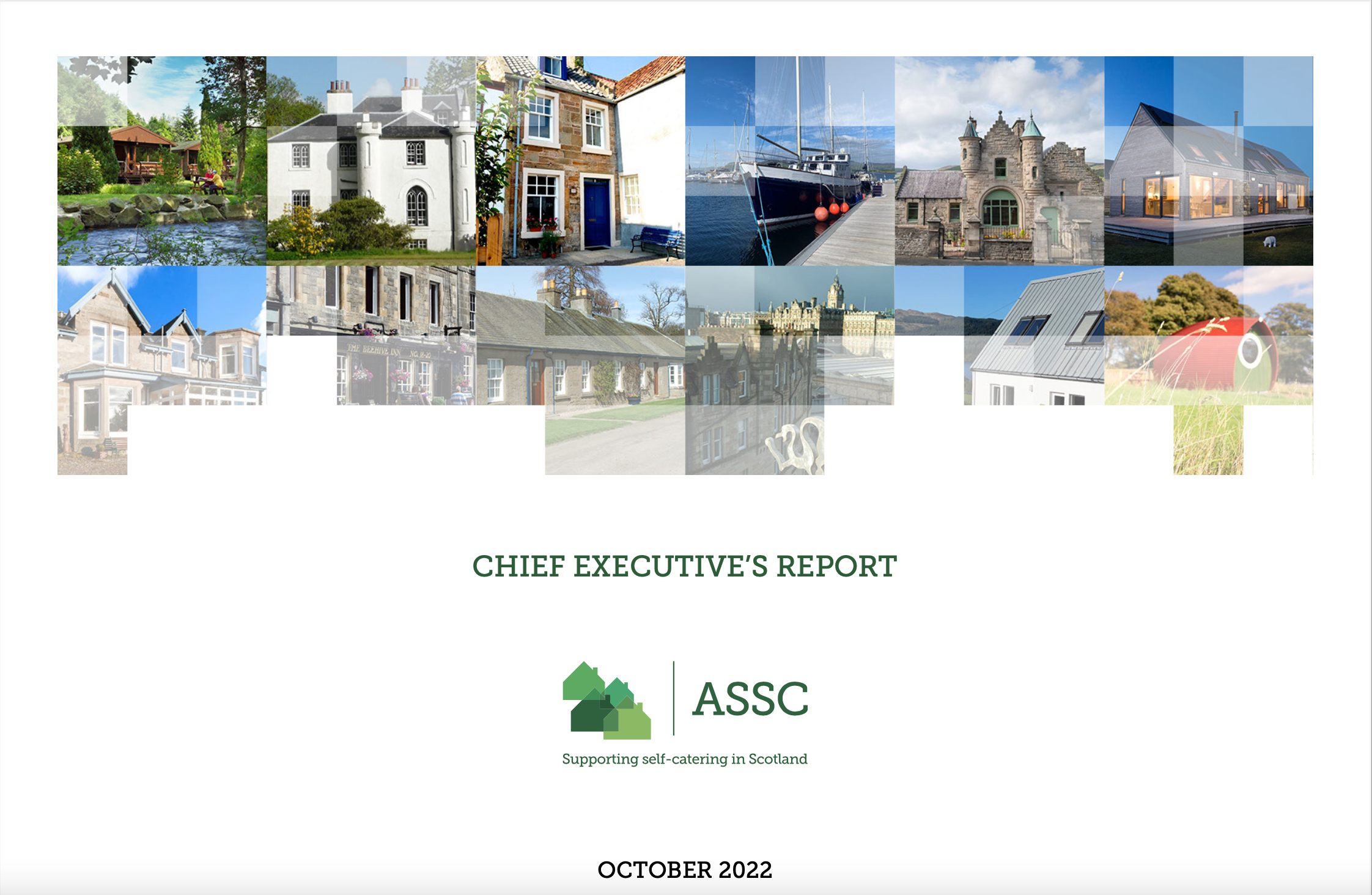Scotland’s tourism industry – of which self-catering plays an integral part – has already been through one of the most challenging times due to the impact of Covid-19 but now faces further uncertainty and economic difficulty with the cost-of-living crisis and impending licensing and planning control regulations.
- The ASSC gathered feedback in October from nearly 1,000 short-term let operators across Scotland to determine where they are right now and what the immediate challenges relating to the cost-of-living crisis and short-term let regulations following the drastic implications of COVID.
- The findings of this survey raise serious implications for the continued viability of many small tourism accommodation businesses in Scotland going forward, especially in rural areas, due to the perfect storm of increased regulation, changes in booking behaviour and rising costs facing self-caterers.
- Nearly half of self-caterers are now considering closing their business over Winter 2022 for the first time due to the cost-of-living crisis, which will hugely impact Scottish tourism, while future bookings are expected to be much worse than pre-Covid.
- A majority of businesses are still heavily concerned about the impact of short-term let licensing. The Scottish Government recently rejected proposals to delay the introduction of this despite the cost crisis and the fact that many resource-stretched local councils are not ready to establish their scheme.
- The cumulative impact of these pressures on self-catering operators cannot be underestimated, with nearly four-in-ten reporting mental health problems as a result.
- The ASSC sincerely hopes that policymakers take cognisance of these findings and do all they can to support small business through these challenging times.
SUMMARY
- Nearly 1,000 (937) operators in Scotland completed the survey.
- 41% of those surveyed are in the pre-retirement age bracket of 55-64 yrs and 76% within this age bracket are female.
- The majority of short-term let operators tend to be located in rural areas which very often means higher living costs and additional challenges such as ferry issues.
- Bookings for winter 2, spring 23 and summer 23 are looking much worse than pre-Covid. 54% of those surveyed say that Spring 2022 bookings are looking worse to much worse in comparison to 2019 (pre-covid).
- The survey highlights a significant change in booking behaviour. Generally, this tends to be more last-minute bookings and less bookings overall. There are concerns that the emerging cost of living crisis will accelerate the cancellations.
- The survey highlights that many operators (45%) are thinking of closing their business over the winter for the first time due to the cost-of-living crisis. This will impact considerably on the rural tourism economy including employment, retail, hospitality etc.
- Additional cost of living costs will impact on businesses in a number of ways. A staggering 60% say that they will now have less to spend on fixtures, fittings and maintenance. This will impact on the overall quality of the tourism product offering in Scotland and the reputation of Scotland as a sustainable, quality destination.
- Short-term let licensing continues to be a significant concern for the majority of businesses with over 70% concerned about the licence not being granted. Meanwhile, 87% consider the scheme to be ‘burdensome’ and 49% have considered stopping letting their property. A staggering 94% of those that might sell up say that their property would not be available for affordable housing.
- 64% of businesses ask for clear and timely communications from the Scottish Government and local councils.
- Following Covid, these businesses are having to navigate through STL licensing, associated costs and now the cost-of-living crisis, we asked in the survey how this is affecting their mental health. 39% of those surveyed are experiencing new mental health problems.
Read the full results: Cost of Living Survey October 2022


